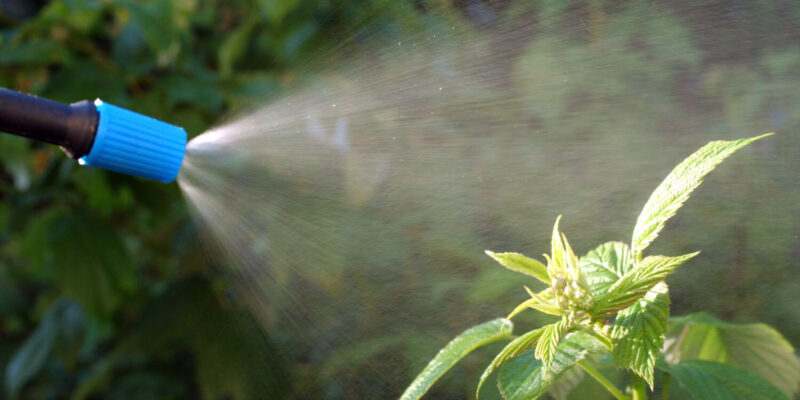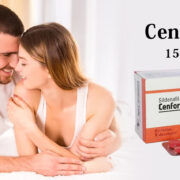
Weeds, pests and plant diseases in the garden: How to control them
Unwanted or unhealthy plants can ruin a beautiful garden. This article discusses ways to control garden pests, diseases and weeds responsibly and safely.
Anyone with a yard has probably had to deal with the problem of controlling pests, diseases and weeds. It’s tempting to go to the local garden store to buy a chemical spray to spray them with. Before you spray chemicals on them, please take into consideration the following:
- What impact will garden chemicals have on the environment?
- Sprays are harmful to wildlife.
- Can pets be hurt by chemicals used to control garden pests?
- Are you familiar with the safest way to use chemicals?
- Can you dispose of the packaging properly?
- What other options are there to solve the problem?
- Does this job require a professional with training?
Plant care will help you avoid pests and disease
Plants are less vulnerable to pests and disease damage if they have a good start.
Feeding your plants regularly with the correct feed will help you avoid problems in your garden. Make sure your plants are getting enough water and that they receive the right feed. A timer or phone app that controls an automatic irrigation system is a godsend for this. By managing trees and hedges, you can improve the airflow around your plants to discourage fungal diseases. Mulch will also help keep weeds in check.
You should be alert to anything that seems out of place. Investigate right away to determine if there is a problem. You can prevent permanent damage to your plants by taking action as soon as possible.
You may find that a culture cure is available for your problem, depending on the type of plant. You can water the plant more or less, feed it, or remove any insects. Sometimes, however, a chemical spray is the fastest and most effective way to solve a problem.
How to choose the best chemical control for your job
When applying a chemical to your garden, the first step is to identify which weeds, pests or diseases you wish to eliminate. Then, research the best active ingredient to use for your problem. Use a specialist chemical that is specific for the problem.
You could compare it to going to the doctor with an infection. Your GP might prescribe a generic antibiotic to try and kill the pathogen causing you illness. Some bacteria and fungi do not respond to any antibiotic. Specific pills are available for specific bugs.
The same is true for garden chemicals. A general-purpose fungicide will not be effective in treating red thread disease on your lawn. A universal herbicide, on the other hand, will harm your favorite plants and weeds. A pesticide that is used all over will destroy pollinating insects and aphids.
Before you consider chemical control, it’s essential to know the enemy and target only plants, microbes, or insects that actually cause damage.
Why application rates matter
Active ingredient is the chemical that does all the work. Active ingredient must be used in the correct quantities at the right times. A farmer or horticulturist buys concentrated spray and dilutes it using the correct ratio of chemical water. They then spray an amount prescribed on a specific area. For example, 2 litres diluted spray for 1 hectare.
The active ingredient in garden store chemicals is often pre-diluted. In other words, it is a weak spray. Manufacturers assume that the person spraying the chemical is not trained and so they make it as safe as possible. The dilution factor can make the spray less effective if you don’t know how to judge the application rate. In the case of fungal infections and insects, organisms that do not die after the first spraying are more likely to produce chemical resistant offspring. In the long run, this is not helpful. It’s equivalent to antibiotic-resistant bacteria in humans or animals.
Professionals trained in spraying have access to more concentrated and, therefore, more effective sprays. We can sometimes buy sprays for specialist purposes that are not available to the public.
Risk Assessment and Risk Management
Each herbicide, pesticide or fungicide chemical has its own unique set of risks based on the active ingredient.
Before you purchase a chemical pest control, you should be aware of the possible pitfalls. Can it be used around pets? How should it stored? Does it take time for it to dry on the plants? Use it only in cool weather. How long will it take to start working? Can it be used for edibles? Can you harvest the food crop immediately after spraying or must you wait a certain period before eating?
There are many questions, but they all have a very important relevance.
Not sure? Not sure? Take advice from professionals on how to care for your device.
Environmental care
Farmers and other professionals are bound by strict laws that govern the use of chemicals in sensitive areas. Professionals are trained to never spray chemicals close to watercourses or livestock, and will not spray spray if wind drift is a possibility. I am concerned that the only restriction on garden centre sprays are common sense.
Also, we have strict guidelines for disposing of chemicals, cleaning sprayers, and storing them. What is the point of flushing chemicals into the drain when you’re trying to avoid watercourses?
Self-Care
You can be certain that any chemicals you use to kill pests, diseases, or weeds are toxic at least for the organisms they are targeting. All agricultural chemicals are rigorously tested for their impact on the environment. Concentrates can be dangerous when used up close. You may be sensitive to certain ingredients.
Wear protective clothing whenever you spray your plants.
- White boiler suits with hoods are best to spot spills immediately.
- Use a mask to protect your nose and mouth from inhaling microdroplets or fuels.
- Gloves and goggles are essential for protecting your eyes.
It’s not the worst thing to feel hot and like an alien!
Chemical control: maximizing the value of your investment
Choose the correct chemical for the task. Some professional chemicals are highly specific, whereas sprays from garden center tend to be more generic.
- Handle all chemicals with extreme caution. Wear protective clothing
- Mixing chemicals can cause unexpected reactions.
- Do not deviate from the recommended application rate. No more, no less. Ask if you are unsure of the correct proportions for concentrate and water.
- Spills should be cleaned up quickly and with care. Never flush liquids down the drain. Instead, use sand or litter to absorb any liquid.
- Working with the weather. You can waste a lot by letting your chemicals blow around on windy days.
- Spot treating weeds is preferable to blanket spraying.
- Before buying chemicals, look for alternatives that are more eco-friendly. You can use biological controls, or tolerate a few aphids in your roses.
- All packaging should be disposed of responsibly
- Hire a professional. Consider things like more efficient chemicals, safer storage, and legislation. It’s likely more cost-effective than trying to fix the problem yourself. It’s safer.
Do you have problems with insects and diseases in the garden?
Nzra, at Keep It Green Garden Maintenance, is fully qualified to treat pests and disease in the garden using chemical controls. He is well-versed in chemical controls, and has plenty of experience applying them. Please contact us if you need assistance in controlling weeds, insects or diseases in your yard.










